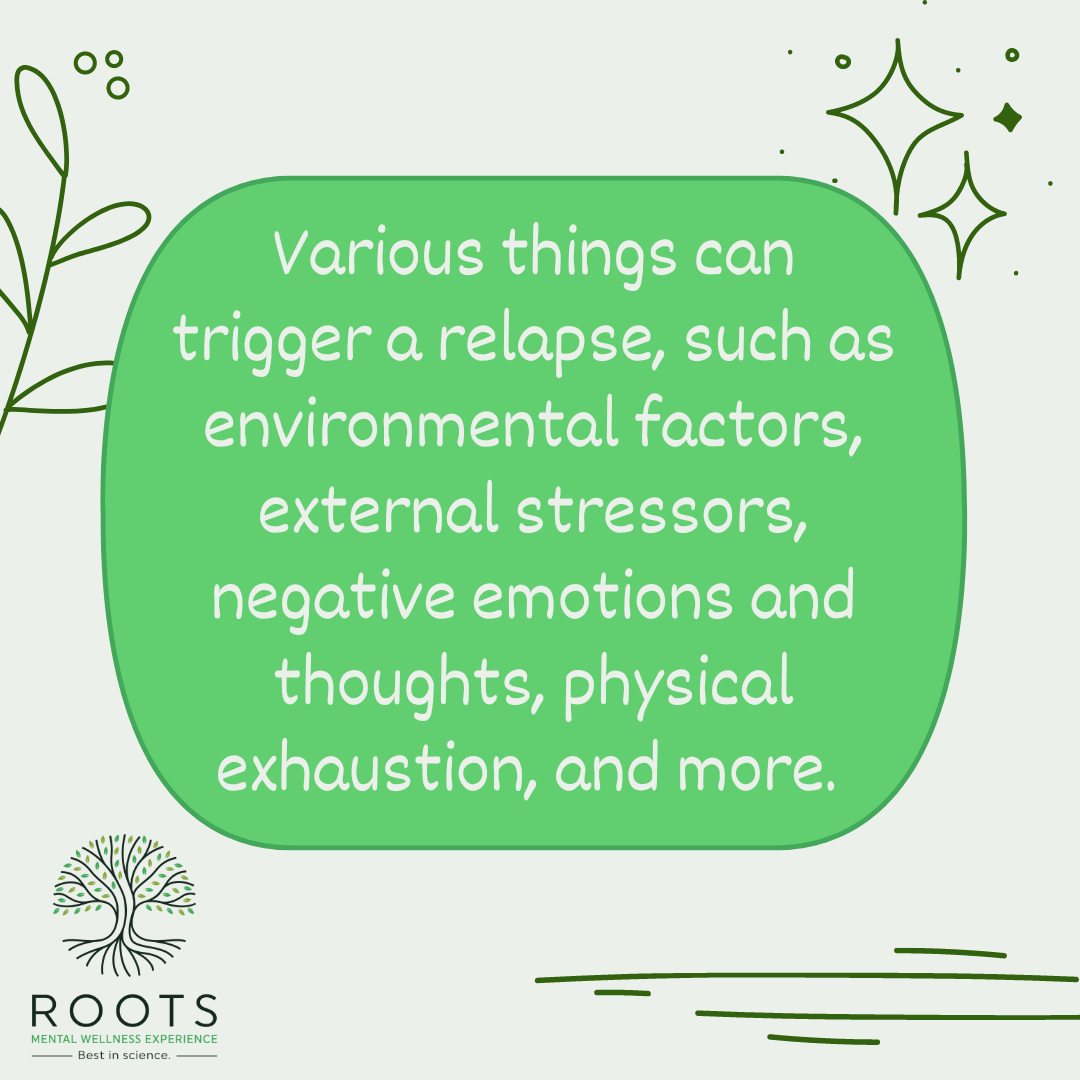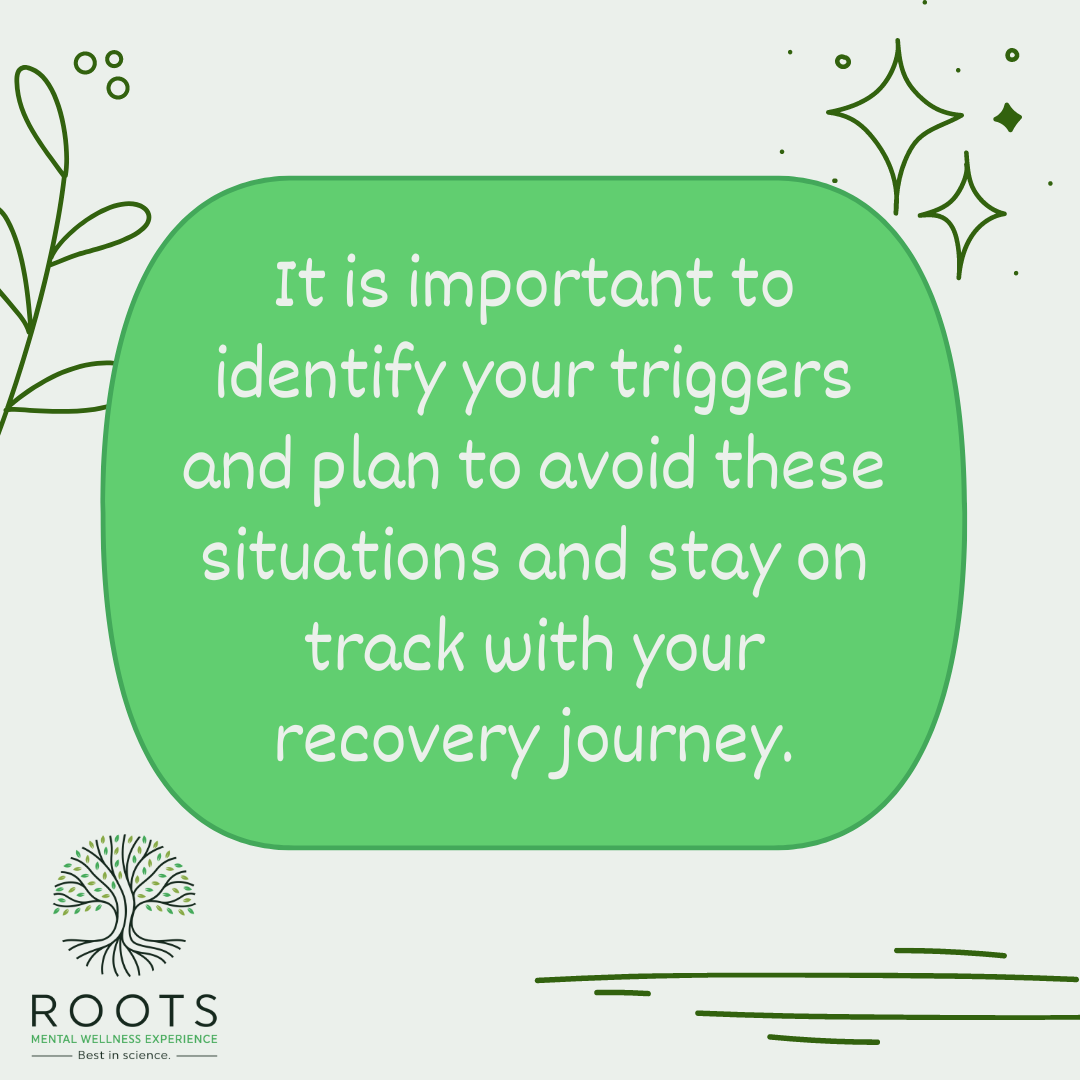Various things can trigger a relapse, such as environmental factors, external stressors, negative emotions and thoughts, physical exhaustion, and more. It is important to recognize what may be potential triggers so that you can plan to reduce your risk of relapse.
This article will discuss everything you need to know about relapse triggers and how to avoid them.
What Is A Relapse?
A relapse is when someone recovering from substance abuse or mental health issues experiences a return to their previous unhealthy behaviors. This can often be due to environmental factors or pressure, stressors, negative thoughts and emotions, physical exhaustion, and more.

What Are Common Causes Of Relapse?
Relapse can happen anytime, but there are many common causes of relapse. Some of these include:
Environmental Triggers
This type of trigger refers to the environment or situations you find yourself in. For example, this could include going to bars, being around people using drugs or alcohol, visiting certain places that remind you of drug use, etc.
External Stressors
Stress can be a major factor in relapse as it can lead to negative emotions and thoughts. External stressors can include work-related stress, problems with family and relationships, financial issues, or anything else that puts pressure on you.
Negative Thoughts And Emotions
Negative thoughts and emotions such as anxiety, depression, hopelessness, or regret can all be potential relapse triggers. It is important to recognize these feelings and try to find ways to cope with them healthily.
Physical Exhaustion
Physical exhaustion can be a major contributor to relapse as it can lead to lowered energy and motivation levels. Getting enough rest, eating nutritious foods, and exercising regularly are all important for reducing the risk of relapse.

What Is A Trigger?
A trigger is anything that can lead to a relapse. Triggers can be internal or external, as discussed above. It is important to recognize your triggers to plan and reduce the risk of relapse.
Some triggers start with an external situation, such as being around people using drugs or alcohol. Other triggers, such as feeling overwhelmed with negative thoughts and emotions, may come from within.
What Are Common Relapse Triggers?
Relapse triggers are any potential situation or event that may cause a person to return to their old, unhealthy behaviors. Such examples would be:
- Feeling overwhelmed or stressed,
- Being around people who are using drugs,
- Going to bars or clubs,
- Having negative thoughts and emotions such as depression or anxiety,
- Experiencing physical exhaustion due to lack of sleep or poor diet.
Triggers can be anything from the environment, such as certain places or people that remind them of their substance abuse days; stressors, like work pressure or family issues; and emotional triggers, such as sadness, loneliness, anger, or boredom.
Moreover, triggers can also be physical, such as lack of sleep or an injury. It is important to identify your triggers and plan to avoid these situations and stay on track with your recovery journey.

What Are The Different Ways To Avoid Relapse Triggers?
Now that you know what relapse and trigger are. As well as some common triggers, it is important to learn how to avoid them. Here are a few tips on how to prevent relapse:
- Acknowledge your triggers and plan ahead.
- Practice self-care by getting enough sleep, eating nutritious meals, and exercising regularly.
- Spend time with supportive friends and family members.
Manage Stress
One of the most common triggers for relapse is stress or pressure. Learning how to manage your stress effectively can help reduce your risk of relapse. Try making time for regular exercise, practice positive self-talk, and relaxation techniques like deep breathing or mindfulness practices.
Avoid High-Risk Situations
It is important to avoid high-risk situations or places that could trigger a relapse, such as bars, clubs, etc. If you find yourself in one of these places, it is best to leave the situation immediately and focus on healthier activities or hobbies instead.
Acknowledge Your Triggers And Plan Ahead
While this can be easier said than done, it is important to identify your triggers and plan so that you can try to avoid them. Make sure to create a relapse prevention plan with the help of a therapist or support group.
Practice Self-Care
It is also important to practice self-care regularly, as this can help reduce the risk of relapse. This includes getting enough sleep, eating nutritious meals, and exercising regularly. Additionally, ensure that you are taking time for yourself and engaging in activities that make you happy or relaxed.

Spend More Time with People You’re Comfortable and Safe With
Spending time with supportive people you trust and feel safe around is important. This could mean spending more time with family members or close friends who can provide support and understanding.
Seek Professional Help
If your triggers are too overwhelming or you feel like your cravings are getting stronger, seek professional help. A therapist can help you identify and manage your triggers and provide the necessary support to stay on track with your recovery.
At Roots Recovery, we understand the challenges of relapse prevention and are here to support you every step of the way. Our team of professionals can help you identify your triggers, develop a relapse prevention plan, and provide the necessary resources for successful recovery. Contact us today for more information about our programs and services.
Conclusion
Relapse triggers can be anything from stress and negative emotions to physical exhaustion. It is important to identify your triggers and create a relapse prevention plan with the help of a therapist or support group. Additionally, practice self-care and spend time with supportive people who will provide understanding and motivation. Finally, if your triggers become too overwhelming or cravings are getting stronger, seek professional help from a recovery center like Roots Recovery.
Overall, relapse prevention is an important part of the recovery process, and there are many ways to reduce your risk of relapse. With dedication, motivation, and commitment to your recovery journey, you can learn how to manage and avoid relapse triggers for a successful recovery.

